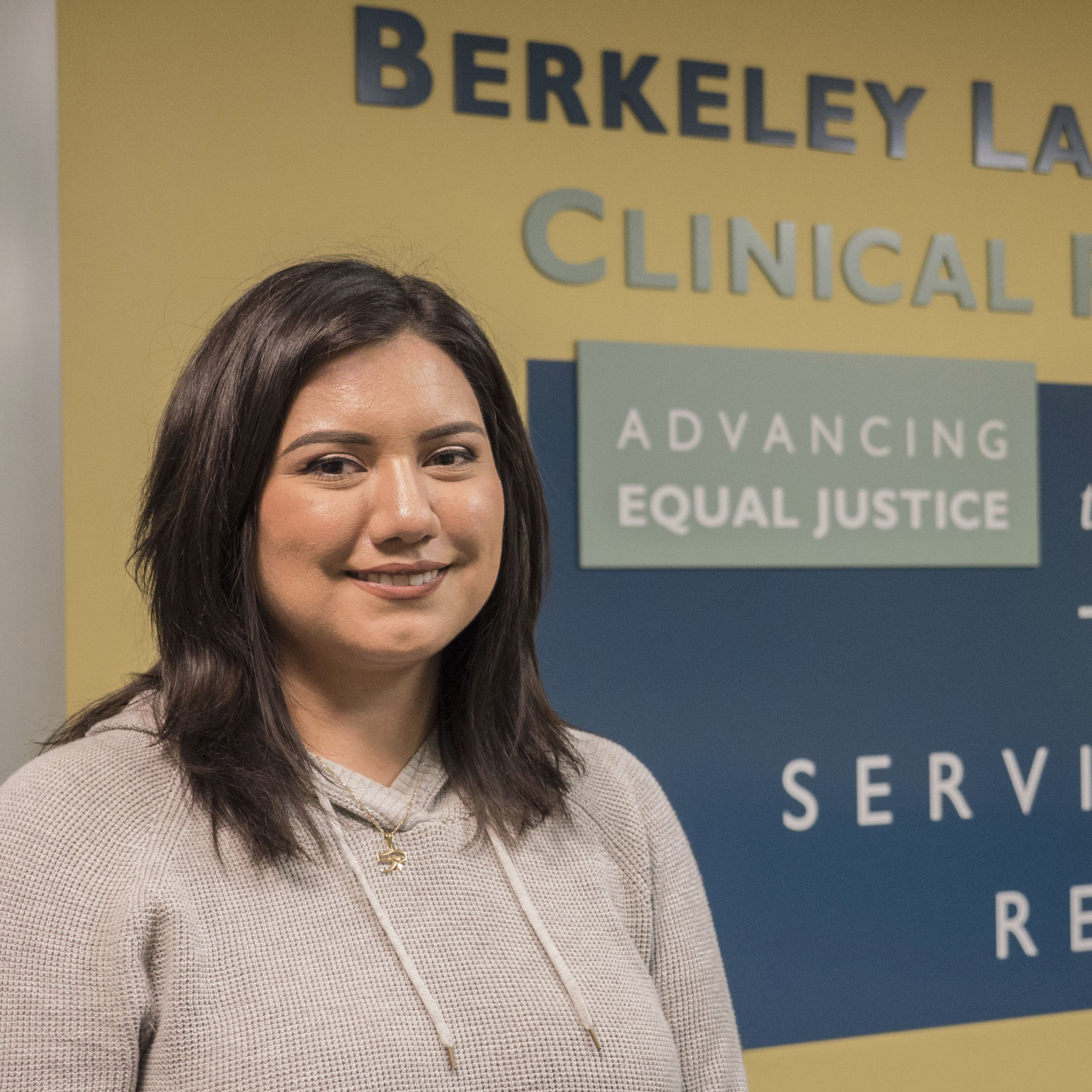 Hometown: San Pablo, CA
Hometown: San Pablo, CA
Education: UC Santa Cruz 2014
Affiliations: Death Penalty Clinic, First Generation Professionals, California Asylum Representation Clinic
As an undergrad I was a legal studies and literature double major with a passion for creative writing. So when I came to law school I didn’t know specifically what area of the law I was interested in. Initially, I thought I wanted to pursue civil rights litigation. Yet, for my 1L summer internship I decided that the Contra Costa Public Defender’s office would be a good fit for me both because I grew up in the county and becuase it gave me a chance to explore criminal law while serving my community. I fell in love with the client-centered focus of the work and the immediacy of results—some of which were good and some of which were bad.
One of my fellow interns was a 2L, and they highly recommended the Death Penalty Clinic (DPC). It seemed like a unique opportunity to work on client cases at the peak of urgency—worst case scenario—and learn about the potential consequences of the choices we make as trial attorneys.
In capital postconviction cases, innocence doesn’t matter most of the time. Often a postconviction petition is based on ineffective assistance of counsel claim or a Brady violation, where the state withheld critical evidence from the defense. Sometimes these things seem minor, and other times the errors are huge, and you are just shocked reading the trial transcripts. That stuff really gets you fired up because, regardless of what the client did or their history, something went wrong and it deserves to be addressed because it severely affected their right to a fair trial.
The justice system is incredibly stacked against capitally-charged clients. The clients are charged with terrible crimes, which often involve heinous facts. This is hard to deal with not only emotionally, but also in terms of a litigation strategy. It’s human nature to have sympathy for the victims, and judges are humans too and are not as impartial as they make themselves out to be – they want to do right by the victims. Oftentimes that can tip the scales against the defendant, and it makes it incredibly difficult to persuade the judge to rule in the client’s favor even if, for example, we succeed in making a showing that the prosecution violated the law. And that’s not right for the defendant or, arguably, the victim.
Especially with death penalty cases, the law often ignores the dignity and the humanity of the person who is charged with the crime. It is essential for the defense team to be invested in these people’s stories, especially in terms of thinking about mitigating evidence and how it was presented (or was not presented) in the trial court. Telling a client’s story to the judge is so important because often the client’s story was not presented at trial at all, or if it was presented, it was done so very poorly.
An important part of our job as clinical students in the DPC is learning how to be effective storytellers for capital case clients. This involves helping the postconviction team explain to the court what was going on in the client’s life before the incident happened. Many of our clients’ lives were filled with incredible struggles, including family violence, drug and alcohol abuse, extreme poverty, intellectual disability, and trauma. This is not an excuse for what happened, but rather an explanation of why the crime occurred that neither the judge nor the jury ever heard the first time around. As clinic students, we get to know the clients in various ways, by reading the trial transcript files and all the records about the client’s life, by interviewing witnesses, and sometimes even by meeting the client personally.
The work can be very heavy. But the DPC community is so invested in helping our clients and supporting each other in navigating these difficult cases, and that really motivates our work. The DPC’s staff and resources represent the ideal of how these cases should be handled. That way, when we go out in the world, we have this model to aspire to to assure that our future clients will get the quality representation they rightfully deserve.